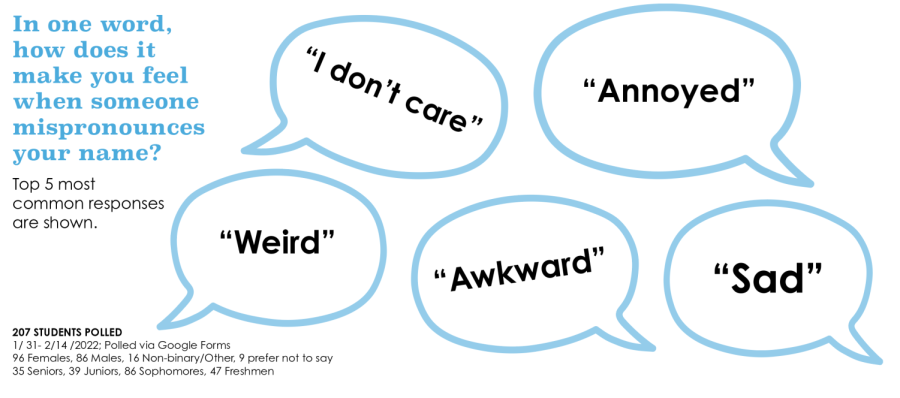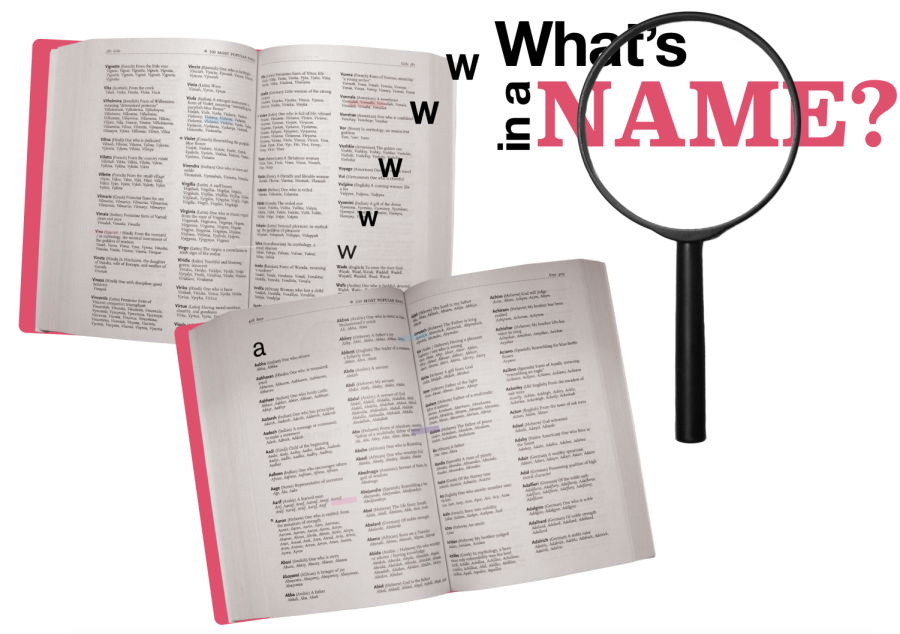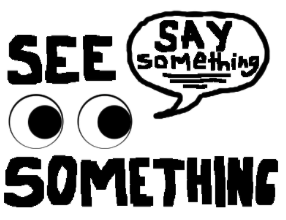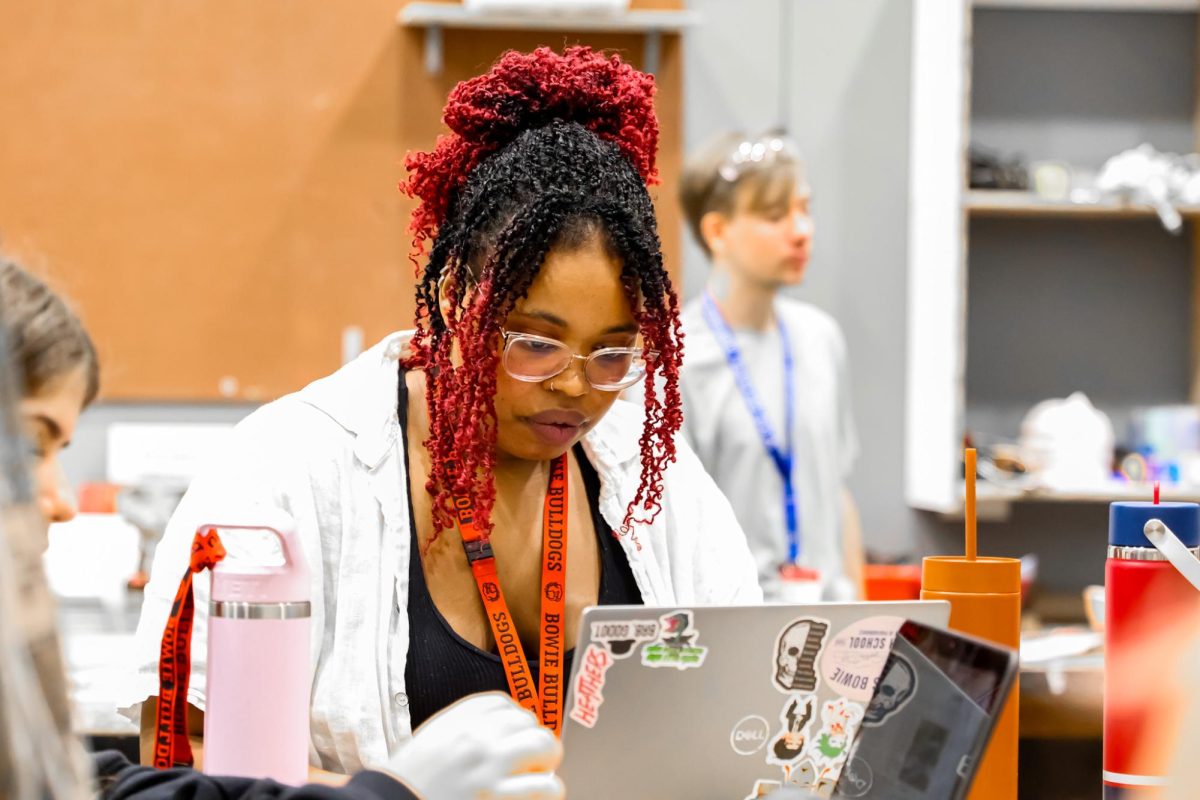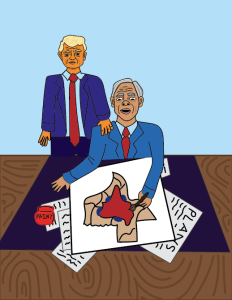What’s in a name?
Many individuals with unique or foreign names have had experiences with their names being labeled as “hard-to-pronounce.”
March 9, 2022
Sophomore ShaeLi Fielding knew what was about to happen. There was a substitute teacher in her class, and they had just begun taking attendance for that period. The sub starts listing off names one by one, with an audible “here” being able to be heard shortly after each name is called. Suddenly, the sub goes quiet, looking down at their roster.
“I can just tell when they’re at my name because they take a pause,” Fielding said. “They get it pretty close most of the time, they just have to sound it out. So I just know it’s me. Sometimes they just go ‘someone by last name Fielding.’ They won’t even try to pronounce it.”
Fielding’s experience is not the first of its kind. Many students find themselves victim to their names being mispronounced or misspelled, both in and out of the classroom. Senior Anastasia Krasnoriadtsev has had experiences with people struggling to pronounce and spell her Russian last name.
“The first time I really remember somebody making a big deal out of my name was in first grade. We were all taking a quiz and out of nowhere, my teacher yelled and got really excited. When we asked what happened she said ‘I finally was able to spell Anastasia’s last name correctly.’ That’s like the first time that I was like, ‘oh my gosh, is [my name] that weird?’”
The first known record of a human name can date back to Sumeria around the year 3200 BCE. Since then, names have developed greatly based on one’s regional location and dialect. Moreover, names often act as a reflection of one’s culture, especially in the United States which, as reported by the U.S. Census Bureau, is home to over 350 languages.
“I like my name a lot because it really is reflective of my culture and my heritage,” Krasnoriadtsev said. “It’s a very Russian name. I’m proud of that identity. So to me, my name is important. I used to not like my name, especially my last name, because it did make me kind of stand out. But now I like it.”
For Fielding, her first name is derived from the name her birth mother gave her after she was adopted. Her mother changed her birth name to her current name, ShaeLi.
“My name connects me to the small part of the Chinese heritage that I have because I was basically raised here in Austin,” Fielding said. “So that’s like, the one little aspect I get because I don’t know my birth parents. I didn’t know anything about myself before I was adopted.”
Senior Taru Mishra’s name was chosen by her parents specifically for its uniqueness. Mishra says that her name creates important ties to her Indian identity.
“I’ve kind of grown into [my name],” senior Taru Mishra said. “When I was younger, I didn’t like it because it was so different. Even in India, it’d be considered a pretty unique name. I sometimes felt like it wasn’t aligned with my American identity as a kid. I wanted to be very American when I was a kid. So I didn’t like it a lot when I was younger, and I had plans to change my name. But I think I like it now.”
Many individuals with unique or foreign names have had experiences with their names being labeled as “hard-to-pronounce.” A poll conducted by Race Equality Matters found that 73% of respondents have had their names mispronounced. These experiences can be seen as volatile, as deliberate name mispronunciation has become an issue as well. For example, at a Trump rally in 2020, Senator David Perdue faced intense backlash after intentionally mispronouncing now-Vice President Kamala Harris’s name.
“Ka-MAL-a (sic), Ka-MAL-a or Kamala, Kamala, Ka-mala, -mala, -mala, I don’t know, whatever,” Perdue said at the rally, according to CNN.
Willful mispronunciation of a name has been labeled by many to be a “microaggression.” Merriam-Webster defines a microaggression as “a comment or action that subtly and often unconsciously or unintentionally expresses a prejudiced attitude toward a member of a marginalized group.” Since Harris is a biracial woman, many saw Perdue’s comment as antagonistic.
“When someone doesn’t take the time to learn the proper way to pronounce another person’s name, or worse – intentionally mocks it for being ‘too difficult’ to pronounce, or tries to ascribe another name to make themselves feel comfortable – it can come across as malicious,” TV celebrity Yewande Biala wrote in an article for The Independent.
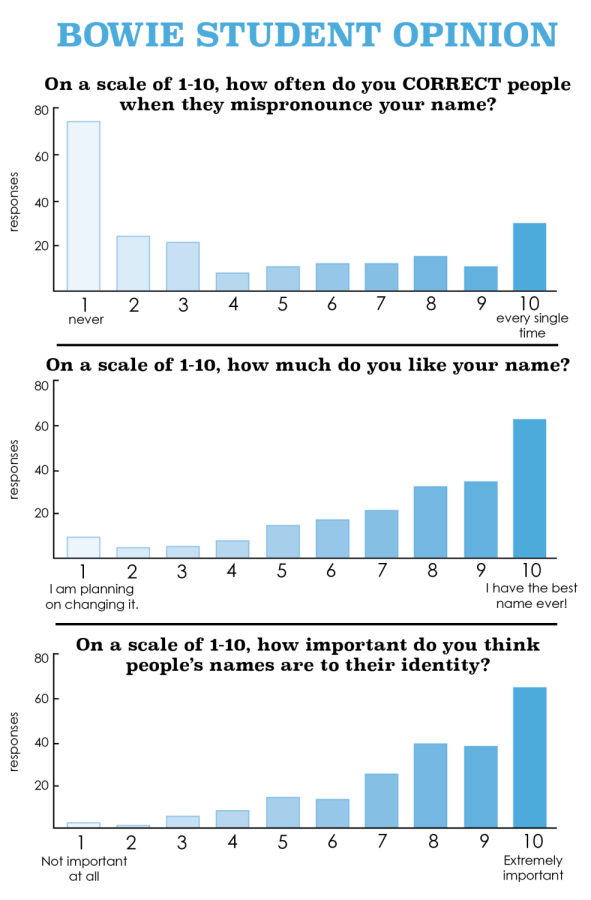
Biala’s experience with name mispronunciation within pop culture isn’t uncommon. Indian-American comedian Hasan Minhaj has repeatedly made comments about the proper way to pronounce his name (Ha-sun Min-haj), and the struggles he faces with others pronouncing it.
“When I first started doing comedy, people were like ‘you should change your name,’” Minhaj said during an interview on the Ellen DeGeneres Show. “I’m not going to change my name. If you can pronounce Ansel Elgort, you can pronounce Hasan Minhaj.”
While many prominent figures in mainstream media have spoken about their major experiences with their name’s pronunciation, a large portion of name pronunciation and spelling errors simply occur in day-to-day life. Even small interactions where one’s name would be used, like going to get coffee, can become a challenge.
“When I would go to Starbucks I would try to use [the name] ShaeLi,” Fielding said. “I now use Elizabeth just because it’s easier. But when I did use ShaeLi, [the baristas] would butcher it pretty bad. I correct people a lot with spelling. It’s all over my Instagram and I write it out a lot in front of people. Sometimes they just don’t recognize that, and they just spell it the way they think it’s spelled and that’s sometimes frustrating.”
While for some, like Fielding, correcting name spelling and pronunciation errors is common, the same acts can be challenging for others. Mishra has had difficulties correcting people when they mispronounce her name.
“I’m just too embarrassed, especially when teachers mispronounce my name,” Mishra said. “I don’t want to make it seem like I’m criticizing them, even though I know it’s probably the right thing to do. I have friends who I’ve been friends with for a long time who still mispronounce my name. I’m kind of too shy to correct them. I feel like they might view me differently or something because they have a different pronunciation of my name. It’s a bad habit.”
People’s names have been shown to possibly influence various characteristics of a person. For example, researchers Brett Pelham, Matthew Mirenberg, and John Jones from the State University of New York found that an individual is more likely to live in a city with a name that resembles their own. This reflects the concept of “implicit egotism,” a phenomenon wherein a person is more likely to be drawn to things that remind them of themselves.
“Our names are how people address us and how people think of us,” sophomore Ali Rizvi said. “If they think of your name, then they think of you. So you’re automatically associated with that name. I also think the meaning behind your name also kind of influences the way you act and how you carry yourself. If your name means something important, you might not want to do something that would bring dishonor to the name.”
Some scientists argue that the relationship between our names and personality is correlation rather than causation. University of Pennsylvania professor Uri Simonsohn refers to most implicit egotism analyses as “fun coincidences.” However, other studies have shown possible connections between our names and aspects of our identity like the way we look, our career choices, and even who we marry.
“Even our name, which is chosen for us by others and is not biological, can influence the way we look through our interactions with society,” Hebrew University (Jerusalem, Israel) researcher Dr. Zonat Zwebner said in an interview with HuffPost.
One of the most prominent places students interact with each other is in the classroom. Being in school eight hours a day means students hear their names a lot. Some teachers, like English teacher Kimberly Wiedmeyer, have attempted to make accommodations for the wide array of names she encounters.
“I care so much about kids feeling comfortable in my classroom,” Wiedmeyer said. “I even asked if, when we do those beginning-of-the-year surveys, there is an audio clip feature where kids can add that the way that they say their name because I do think it’s really important. I know I’ve gotten kids’ names wrong in the past, and that hurts me because my goal is to make them feel comfortable. I can only imagine if that was a meaningful thing to you so oftentimes I will ask kids to remind me of the pronunciation.”
There are easy ways to treat other people’s names with respect, according to Rizvi, who provided some advice when people encounter a name that they do not know how to pronounce of spell.
“Just try your best to pronounce it the right way,” Rizvi said. “You can also just ask the person who has the name. Normally like, like 99% of the time, the person who holds the name knows how to pronounce it. So if you just ask that person respectfully, you should be fine.
